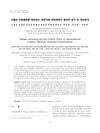 1 citations,
December 2013 in “Turkderm”
1 citations,
December 2013 in “Turkderm” Use of cosmeceuticals during pregnancy and breastfeeding is not recommended due to insufficient safety data.
[object Object]  December 2023 in “Research in pharmacy”
December 2023 in “Research in pharmacy” Phytotherapeutic compounds and supplements can help manage Polycystic Ovarian Syndrome (PCOS).
 January 2020 in “Elsevier eBooks”
January 2020 in “Elsevier eBooks” Plant-based chemicals may help hair growth and prevent hair loss but need more research to compete with current treatments.
 March 2012 in “Daehan hwajangpum hakoeji/Daehan hwa'jangpum haghoeji”
March 2012 in “Daehan hwajangpum hakoeji/Daehan hwa'jangpum haghoeji” The cream with plant components increased skin collagen and the hair tonic promoted hair growth in mice.
 May 2024 in “International journal of nanomedicine”
May 2024 in “International journal of nanomedicine” Plant-derived extracellular vesicles show promise for treating diseases like cancer and inflammation.
 2 citations,
August 2022 in “Korean journal of medicinal crop science/Han-gug yagyong jagmul hag-hoeji”
2 citations,
August 2022 in “Korean journal of medicinal crop science/Han-gug yagyong jagmul hag-hoeji” BLH308, made from persimmon leaf, green tea, and sophora fruit, may help reduce hair loss by fighting oxidative stress and inflammation.
23 citations,
November 2018 in “International Journal of Molecular Sciences” Deoxyshikonin helps wounds heal faster in diabetic mice.
 4 citations,
November 2021 in “Pharmaceuticals”
4 citations,
November 2021 in “Pharmaceuticals” Paeonia lactiflora and Poria cocos extracts can potentially increase hair growth and reduce hair loss symptoms by lowering testosterone and inflammation levels.
 February 2024 in “Journal of medicinal food”
February 2024 in “Journal of medicinal food” The research found a way to develop hair growth materials by targeting a specific signaling pathway.
 April 2011 in “한국생물공학회 학술대회”
April 2011 in “한국생물공학회 학술대회” Lotion with fucoidan from brown seaweed improved skin and reduced allergy symptoms in mice with dermatitis.
 9 citations,
December 2022 in “Phytomedicine”
9 citations,
December 2022 in “Phytomedicine” More high-quality research is needed to recommend flavonoids and saponins for clinical use.
[object Object]  7 citations,
December 2021 in “Pharmaceutics”
7 citations,
December 2021 in “Pharmaceutics” Natural products like plant extracts can help promote hair growth and could be used to treat hair loss.
 7 citations,
March 2021 in “Evidence-based Complementary and Alternative Medicine”
7 citations,
March 2021 in “Evidence-based Complementary and Alternative Medicine” Nelumbinis Semen extract helps hair grow and could prevent hair loss.
 1 citations,
January 2022 in “Stem cell biology and regenerative medicine”
1 citations,
January 2022 in “Stem cell biology and regenerative medicine” New methods to test hair growth treatments have been developed.
January 2023 in “Pharmaceutics” AA–TF#15 significantly promotes hair regrowth and could be an effective treatment for androgenic alopecia.
 March 2023 in “International Journal of Advanced Research in Science, Communication and Technology”
March 2023 in “International Journal of Advanced Research in Science, Communication and Technology” Various medicinal plants like Polygonum multiflorum, Red ginseng extract, and Zizyphus jujuba can potentially treat hair loss, offering benefits like low cost and multiple ways of working. Other effective natural substances include Pygeum africanum, Seneroa, Urtica dioica, and more.
 25 citations,
May 2012 in “Journal of The European Academy of Dermatology and Venereology”
25 citations,
May 2012 in “Journal of The European Academy of Dermatology and Venereology” Many Korean patients with hair loss, skin allergies, and psoriasis use alternative medicine, but satisfaction is low.
 9 citations,
March 2011 in “Oxidative stress and disease”
9 citations,
March 2011 in “Oxidative stress and disease” Some herbal treatments are effective for skin disorders, but more research and regulation are needed.

Herbal remedies might help with hair loss but need more research for safety and effectiveness.
 December 2023 in “Journal of Food Science and Nutrition”
December 2023 in “Journal of Food Science and Nutrition” Rosehip Seed Oil may help hair grow by activating important growth pathways and increasing hair follicle size in mice.
May 2024 in “Molecules/Molecules online/Molecules annual” Plant extracts can help prevent hair loss and promote hair growth.
 8 citations,
April 2020 in “Journal of Ethnopharmacology”
8 citations,
April 2020 in “Journal of Ethnopharmacology” Herbs might help with hair loss, but more research is needed to confirm their safety and effectiveness.
 2 citations,
March 2015 in “Toxicology and Environmental Health Sciences”
2 citations,
March 2015 in “Toxicology and Environmental Health Sciences” Rice bran extract caused moderate skin irritation but no eye irritation, while a diluted essence was not irritating to skin and only slightly to guinea pigs.
 26 citations,
May 2021 in “International Journal of Molecular Sciences”
26 citations,
May 2021 in “International Journal of Molecular Sciences” Cheonggukjang may help prevent and manage various diseases and improve overall health, but its odor and safety concerns need addressing.
 41 citations,
July 2015 in “Current Drug Discovery Technologies”
41 citations,
July 2015 in “Current Drug Discovery Technologies” Some plants may help with hair growth and have fewer side effects than synthetic drugs, but more research is needed to confirm their effectiveness.
 16 citations,
September 2018 in “Journal of Ethnopharmacology”
16 citations,
September 2018 in “Journal of Ethnopharmacology” Plant-based remedies may treat hair loss by reducing inflammation and improving insulin resistance.
 15 citations,
November 2015 in “Journal of Cosmetic Dermatology”
15 citations,
November 2015 in “Journal of Cosmetic Dermatology” Botanicals like green tea extract show potential for hair growth, but more research is needed.
 June 2024 in “Korean Journal of Pharmacognosy”
June 2024 in “Korean Journal of Pharmacognosy” The compound from Rhododendron mucronulatum roots may help treat male pattern hair loss.
 2 citations,
August 2023 in “Marine drugs”
2 citations,
August 2023 in “Marine drugs” Collagen from tilapia scales may improve hair and skin health by reducing stress and inflammation and encouraging hair growth.
 45 citations,
August 2019 in “Dermatologic Therapy”
45 citations,
August 2019 in “Dermatologic Therapy” Hair loss treatments work better with lifestyle changes.



























